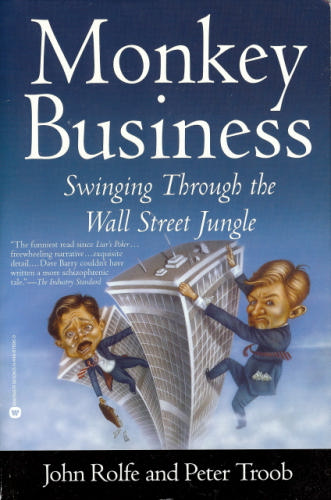THE TRIGGER:
I just finished reading Blog! By David Kline and Dan Burstein which I reviewed last post. A bunch of interesting points appeared but one paragraph really drew my attention. It appeared in an interview with David Teten and Scott Allen(from Virtual Hanshake):
???The major difference between blogs and social networking sites is that, while still social in nature, blogs are far more individualistic. You don??™t need to join a particular online site to participate in a discussion around, say, new technology trends. And in terms of the discussion itself, the communication is centered around the personal voice or views of the blogger rather than on the group, as it is in discussion forums on networking sites.???
What bothers me in this paragraph is the word ???individualistic??™. Just like the interviewee, we make one big assumption ??“ that blogs are individualistic. For many years we have seen the blog as something personal, private, and almost sacred. These are the characteristics of a (online) diary, which is quite natural given that blogs are descendants of the personal diaries. However, as we dig deeper in the social networking models we realize that our true nature is social and not individualistic. People write blogs because they want to be heard and recognized, because they want to communicate, get advice, and make new friends. True, blogs do have a personal and distinguishable voice, but this is exactly what they should use to socialize. Yet, they don??™t. Blogging these days is more like sitting on the top of the hill and screaming your lungs out to the crowd. Linking is more like pointing with fingers left and right, rather than shaking hands, hugging people and making new introductions. We are screaming so loud though, that we forget to identify who our listeners are.
THE IDEA:
We should stop thinking of the blog as an online journal. Blog is actually the closest thing that comes to a profile of a person. No Facebook, Myspace, or any other proprietary site can squeeze such detailed, impassioned stream of consciousness. With pictures, video and text, the blog has it all. There are plenty of apps that can be used ??“ look at Fred Wilson??™s blog. It??™s got it all- Twitter, profile picture, voki avatar, music, name it -he’s got it. What we still don??™t realize is that blog is the unit of the most organic, largest, universal social network. The best part? It??™s not a proprietary site, it??™s a network pushed by a multitude of users, open source software, and private web2.0 applications.
HOW WE DO THAT:
We are actually closer to that vision than it seems. We have all the components in place, all we have to do is rewire them ??“ RSS, blogs, enthusiastic useful information swap, critical mass, a plethora of apps.
Small changes (such as few new tags in the RSS) can define the difference between blog1.0 and blog2.0. From then on blog2.0 will develop in a totally different direction with two main characteristics:
1) Blog2.0 parts will be unified under the single profile they represent. Anything people use to identify themselves in social networking sites will also be integrated in blogs ??“ status updates, profile picture, ‘About me’, interests, albums, friends, topics for discussion – anything.
2) Blog2.0 will become a platform for applications, just like Facebook did. Gmail blended email with chat very successfully and blogging will do the same – friends lists, VoIP, chat, email, etc.
THE RESULT:
-You either install an open source package on your server or you take advantage of an already existing company like Typepad to create.
-You upload an avatar, fill in details, write your first post. You also change your status to ???John has a new blog2.0???
-After lunch you have 4 invitations to become friends with your buddies??™ blog2.0s. You accept them.
-You look at the activity on your post. Commenting resembles a Facebook wall but also has threading/voting like reddit.com
-You then check your inbox, send out a couple of messages, upload pictures. Just like people get notified by RSS for the new posts, they get notified for the uploaded pictures.
-A photographer happens to stumble upon one of your pictures of the gorgeous Costarican jungles and starts chatting with you on Blog2.0. You become friends and you add her to the friends list. Potential date.
-The followin day you decide to change your avatar. All the comments you’ve ever made in the blogworld have now your new picture.
NAYSAYERS:
“But I am happy with what I have. My blog is private, individualistic and I want it to stay like that!”
No one will force anybody to make that transition, so whoever is happy with what they have, they are welcome to keep it (say hello to ‘backward compatibility’). However as our imaginary blog2.0 picks up, it will increasingly look (for naysayers) like they are left out of the big party. They will simply be missing out, just like it happened with blogs, with social networking sites, with emails, and pretty much any technological improvement, and the blog2.0 as a profile unit in an organic social networking, may be one of those improvements.
What do you say?








